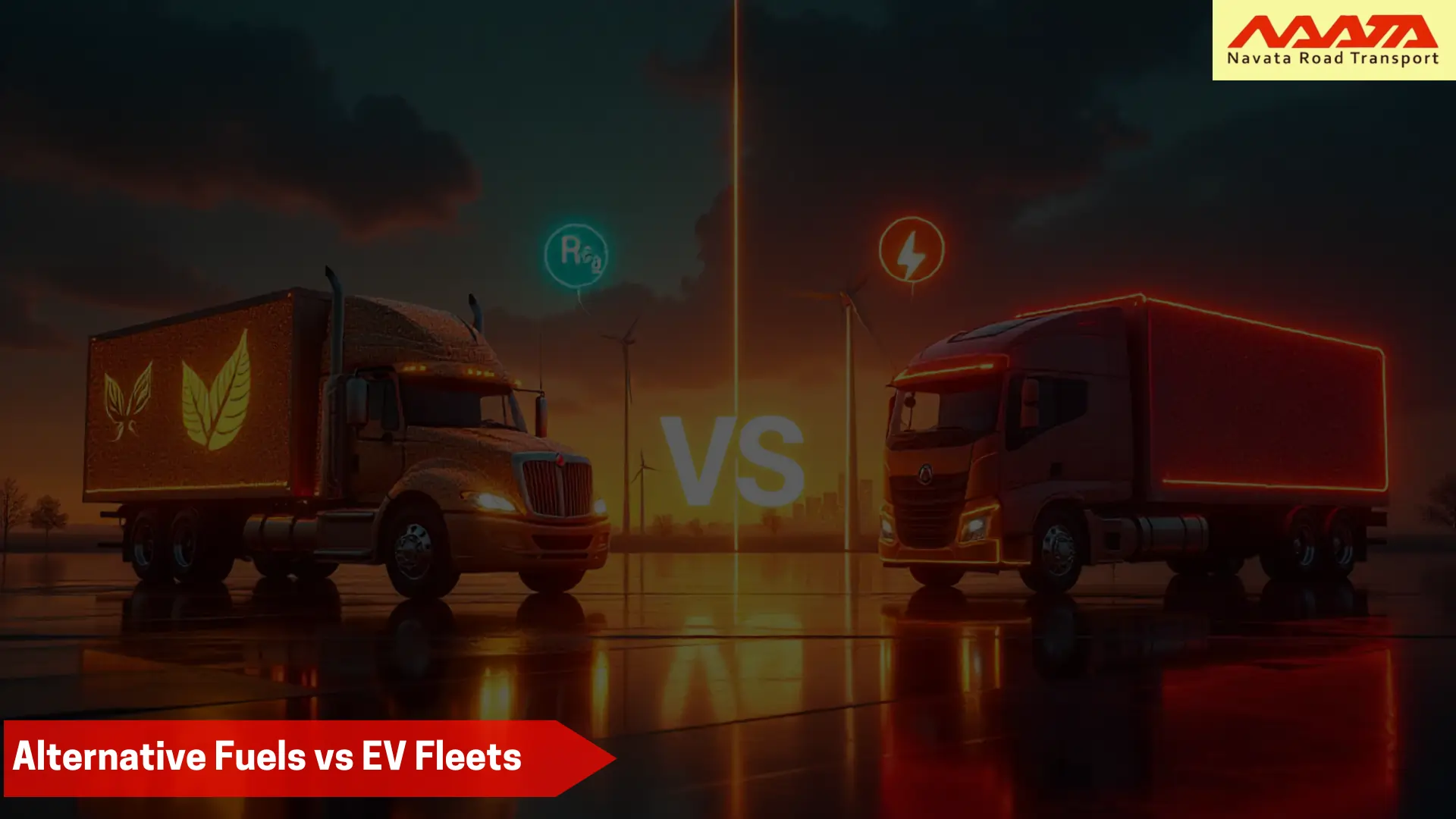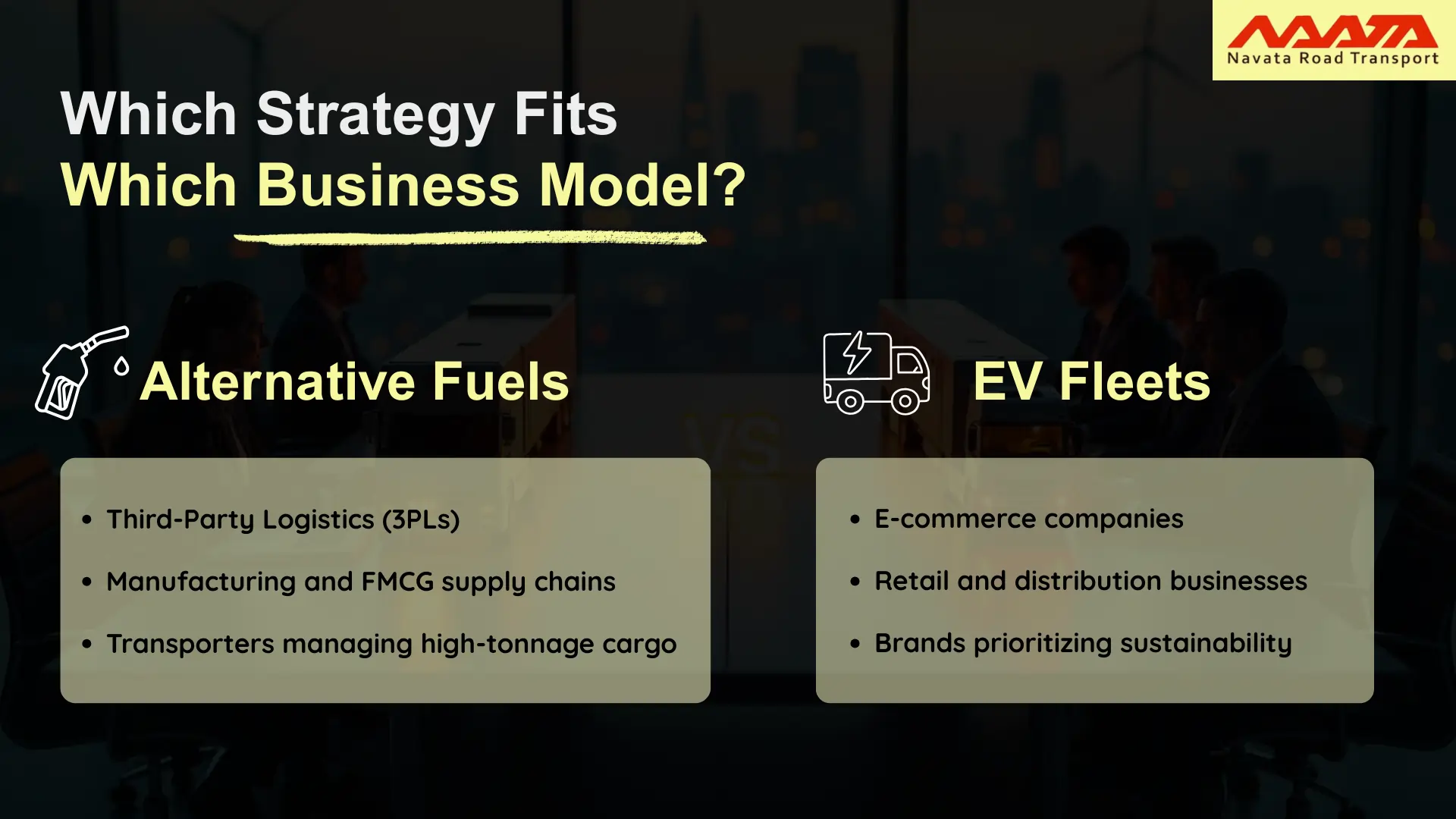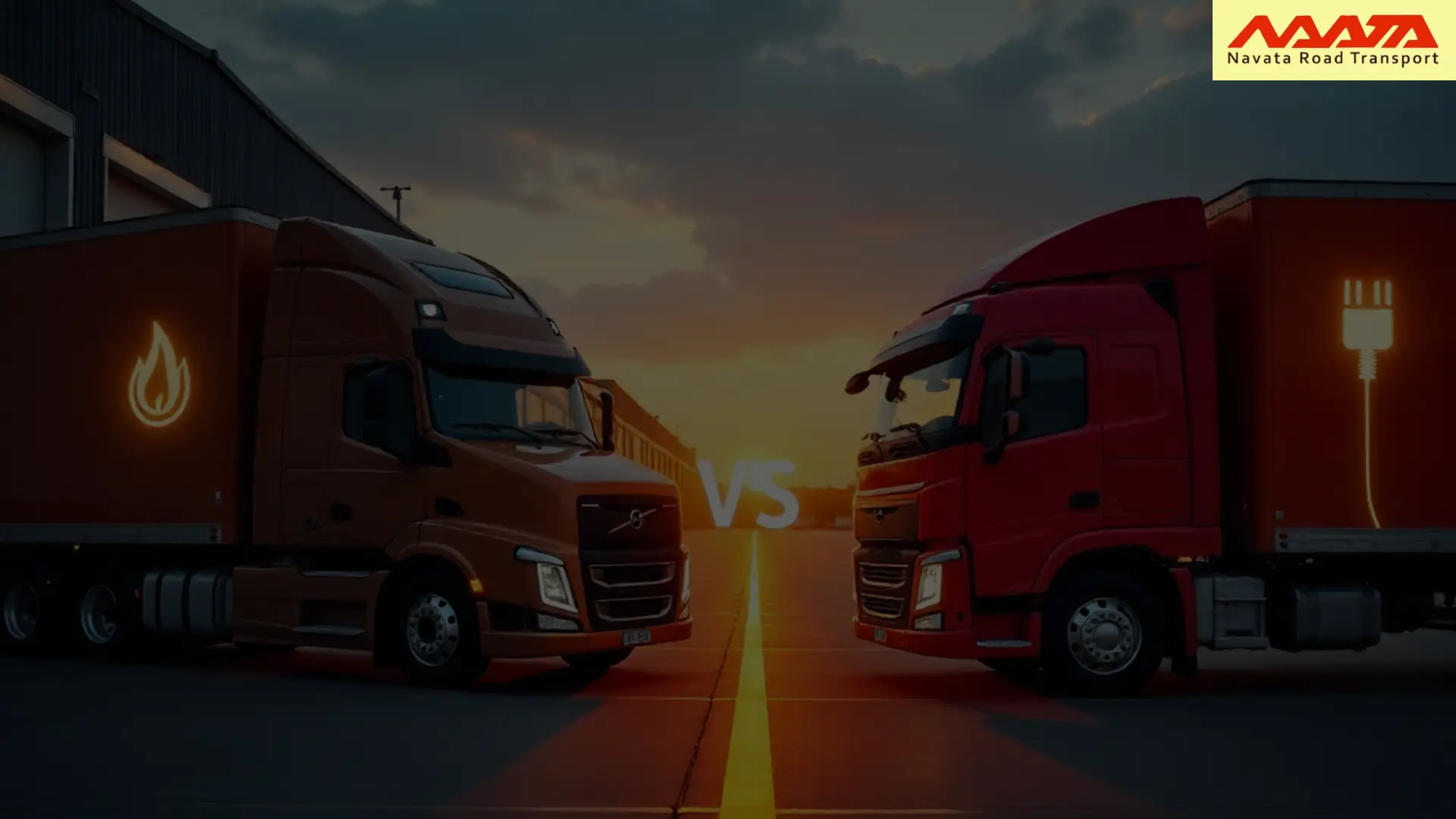
Alternative Fuels vs EV Fleets: Which Strategy Fits Which Business Model?
Table of Contents
Alternative Fuels vs EV Fleets
Supply chain and logistics leaders are under pressure to cut costs, reduce emissions, and future-proof operations.
Two leading pathways are alternative fuels (CNG, LNG, biodiesel, hydrogen) and electric vehicle (EV) fleets. The right choice depends not on hype, but on your business model.
For asset-heavy fleets, long-haul operations, and cost-sensitive networks, alternative fuels may deliver faster ROI. For last-mile delivery, controlled routes, and sustainability-driven industries, EV fleets are emerging as the strategic fit.

What Are Alternative Fuels and When Do They Work Best?
Alternative fuels—including CNG, LNG, biodiesel, ethanol, and hydrogen—are gaining traction as transitional solutions.
- Best for: Long-haul trucking, bulk cargo, heavy loads, and businesses operating across intercity and interstate routes.
- Advantages: Lower emissions than diesel, cost savings on fuel (CNG/LNG), and compatibility with existing vehicle infrastructure.
Business Models Fit:
- Third-Party Logistics (3PLs) with heavy freight operations.
- Manufacturing and FMCG supply chains with interstate distribution.
- Transporters managing high-tonnage cargo where range matters more than city restrictions.
When Do EV Fleets Make More Business Sense?
Electric fleets are designed for shorter routes, high-frequency deliveries, and sustainability-driven branding.
- Best for: E-commerce, last-mile delivery, intra-city distribution, and retail logistics.
- Advantages: Zero tailpipe emissions, lower maintenance, subsidies and incentives, and strong CSR value.
Business Models Fit:
- E-commerce companies focusing on last-mile efficiency.
- Retail and distribution businesses with high-density urban networks.
- Brands prioritizing sustainability as part of customer experience and ESG compliance.
To dive deeper into policies, incentives, and future outlook, check our detailed guide on Electric Trucks on The Road

Cost and ROI: Which Is More Viable for Logistics Leaders?
- Alternative Fuels: Lower upfront cost than EVs, but fluctuating fuel availability and infrastructure gaps may affect long-term economics.
- EV Fleets: Higher upfront investment, but long-term TCO (total cost of ownership) is favorable due to lower energy and maintenance costs.
- Decision Factor: Business scale, capital allocation strategy, and government incentives available in your region.
Infrastructure and Policy Considerations for Decision-Makers
- Asset-Heavy Logistics Firms: Lean toward alternative fuels for scalability and long-haul flexibility.
- E-commerce & Last-Mile Businesses: Gain more from EV fleets, aligning cost efficiency with sustainability goals.
- Hybrid Approach: Many large companies are adopting a dual-strategy—alternative fuels for long-distance freight, EVs for last-mile.
Strategic Fit: How to Align with Your Business Model
- Asset-Heavy Logistics Firms: Lean toward alternative fuels for scalability and long-haul flexibility.
- E-commerce & Last-Mile Businesses: Gain more from EV fleets, aligning cost efficiency with sustainability goals.
- Hybrid Approach: Many large companies are adopting a dual-strategy—alternative fuels for long-distance freight, EVs for last-mile.
Which Strategy Should Leaders Choose?
For supply chain executives, warehouse managers, and logistics leaders, the choice is strategic:
If your business depends on heavy freight, long-haul routes, and cost efficiency → Alternative fuels are the immediate fit.
If your model is built on urban deliveries, last-mile logistics, and sustainability-driven growth → EV fleets are the smarter move.
👉 The future will not be EV vs. alternative fuels, but EV + alternative fuels, depending on the business model and operational goals.

Thank You For Reading– Alternative Fuels vs EV Fleets: Which Strategy Fits Which Business Model?
Powered By 360Presence
FAQ's
1. Which industries benefit most from alternative fuels?
Industries with heavy loads, interstate routes, and bulk cargo—like FMCG, manufacturing, and 3PL logistics—benefit most from alternative fuels.
2. Which sectors should prioritize EV fleets?
E-commerce, retail, and urban logistics companies should prioritize EV fleets for efficient, sustainable last-mile operations.
3. Are EV fleets more cost-effective than alternative fuels?
EV fleets have higher upfront costs but deliver long-term savings in maintenance and energy, especially in dense city networks.
4. Can logistics companies adopt both strategies?
Yes. Many leading logistics providers adopt a hybrid model—using EVs for last-mile delivery and alternative fuels for long-haul operations.
5. What role do government policies play in adoption?
Subsidies, emission norms, and green fleet incentives heavily influence adoption decisions and ROI for both strategies.








